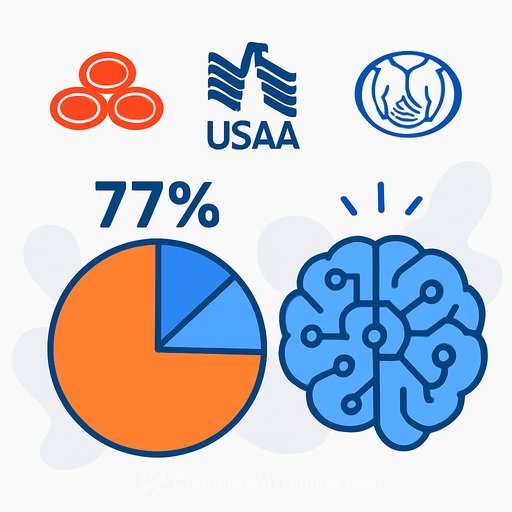Insurance Industry’s Hesitation on AI Agents Despite Growing Interest
Only 4% of insurance companies fully trust AI agents, even as interest in their potential rises. According to a recent report from the Capgemini Research Institute, just 10% of insurers have implemented AI agents either partially or fully. Another 20% are experimenting with pilot projects, but a significant 42% still lack a formal strategy for integrating AI agents into their operations.
This cautious approach comes despite the fact that Agentic AI represents a substantial opportunity, estimated to be worth around $450 billion. However, many insurance firms are still figuring out how to effectively deploy these technologies and lack a clear roadmap for doing so.
Where AI Agents Are Expected to Make an Impact
Insurance organizations see the biggest potential for AI agents in sales and customer service. More than half expect AI to manage at least one process or sub-process daily in these areas — 52% for sales and 57% for customer service and support.
Yet, trust in AI remains a major barrier. The percentage of insurance firms that fully trust AI agents has dropped from 54% in 2024 to 47% in 2025. Only a small fraction, 4%, express full confidence in the technology.
Top Concerns Holding Back AI Adoption
- Privacy: 50% of insurers worry about data privacy issues linked to AI.
- Bias: Half of respondents are concerned about AI bias affecting decisions.
- Transparency: 51% highlight transparency as a key risk when deploying AI agents.
These concerns contribute to the slow adoption and cautious approach insurers are taking with AI agents.
Looking Ahead: AI Agents and Workforce Integration
About 26% of insurers believe AI agents will augment human workers within the next one to three years. Meanwhile, 35% expect these agents to operate autonomously but within teams supervised by humans. This suggests a future where AI assists rather than replaces human roles in insurance.
Skills and Ethics in AI Deployment
Technical expertise in programming and software development is the top skill insurers are focusing on, with 67% highlighting its importance. On the softer side, decision-making skills are considered most critical by 60% of insurance organizations.
Despite the growing use of AI, only 8% of insurers have fully embedded ethical AI principles into their operations. This is notably below the global average of 14%, signaling an area that needs more attention as AI adoption grows.
For insurance professionals looking to deepen their AI knowledge and skills, exploring focused AI courses can be a practical next step. Resources like Complete AI Training’s insurance-focused AI courses offer targeted learning paths for mastering AI tools and ethics in the industry.
Your membership also unlocks:






